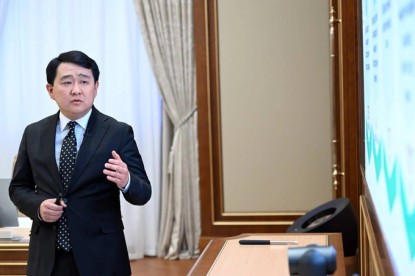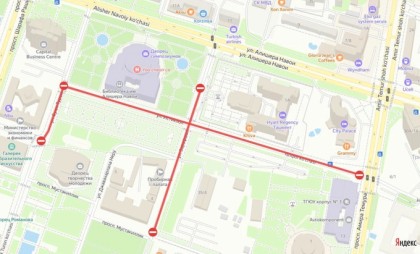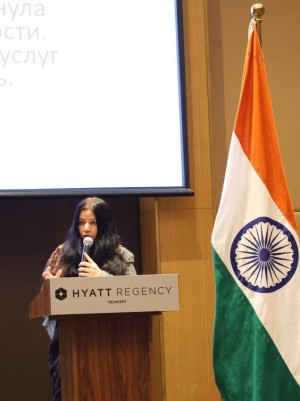The Department for Combating Tax, Currency Crimes and Legalization of Criminal Proceeds under the General Prosecutor's Office of Uzbekistan signed a Memorandum of Understanding (MoU) on combating transnational financial crimes with the US Secret Service, theUS Embassy in Tashkent said.
The document was signed on March 15 by the head of the department of Akmalkhuja Mavlonov and the US Secret Service Resident Agent in Charge Denise Feudner. The MoU provides for the exchange of information on financial investigations and experience and technical developments in the field of currency crimes.
“Currency and financial crimes are a global threat of ever-increasing sophistication. Stopping these crimes is a pivotal way to combat transnational criminal organizations. It’s critically important that the Secret Service and law enforcement partners help each other around the world, and that’s why we want to work closely with the General Prosecutor’s Office here in Uzbekistan.” said Agent Feudner.
This MOU project was also supported by the Uzbek Ministry of Foreign Affairs and the Diplomatic Security Regional Security Office (RSO) at the U.S. Embassy. “This MOU advances one of our primary goals at the U.S. Embassy to Uzbekistan: to strengthen U.S. – Uzbek security and law enforcement cooperation to thwart transnational criminal organizations,” said an RSO representative.
In December 2017, the Prosecutor General's Office of Uzbekistan and the US Federal Bureau of Investigation also signed a Memorandum of Understanding providing for prompt cooperation in combating crime and on security issues.
The US Secret Service was created on July 5, 1865 in Washington D.C. to suppress counterfeit currency.. In addition to protecting the president and other high-ranking officials of the US government, the Secret Service conducts investigation to safeguard the payment and financial systems of the United States from a wide range of financial and electronic-based crimes., counterfeit U.S. currency, bank & financial institution fraud, mail fraud, wire fraud, illicit financing operations, and major conspiracies Electronic investigations include cybercrime, network intrusions, identity theft, access device fraud, credit card fraud, and intellectual property crimes.
Enhanced cooperation between the two law enforcement agencies will enable the countries to confront transnational criminal organizations and security threats by investigating and prosecuting mechanisms for their financial support, the statement said.















